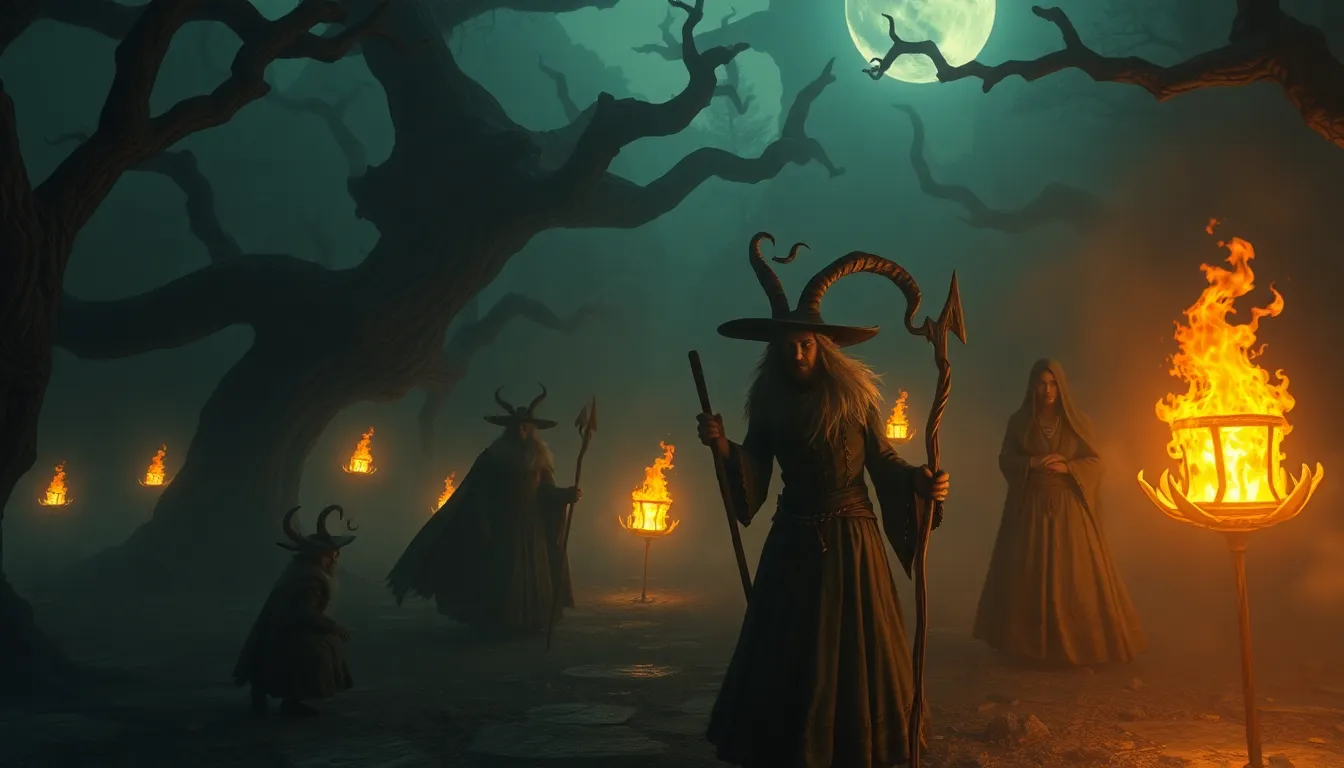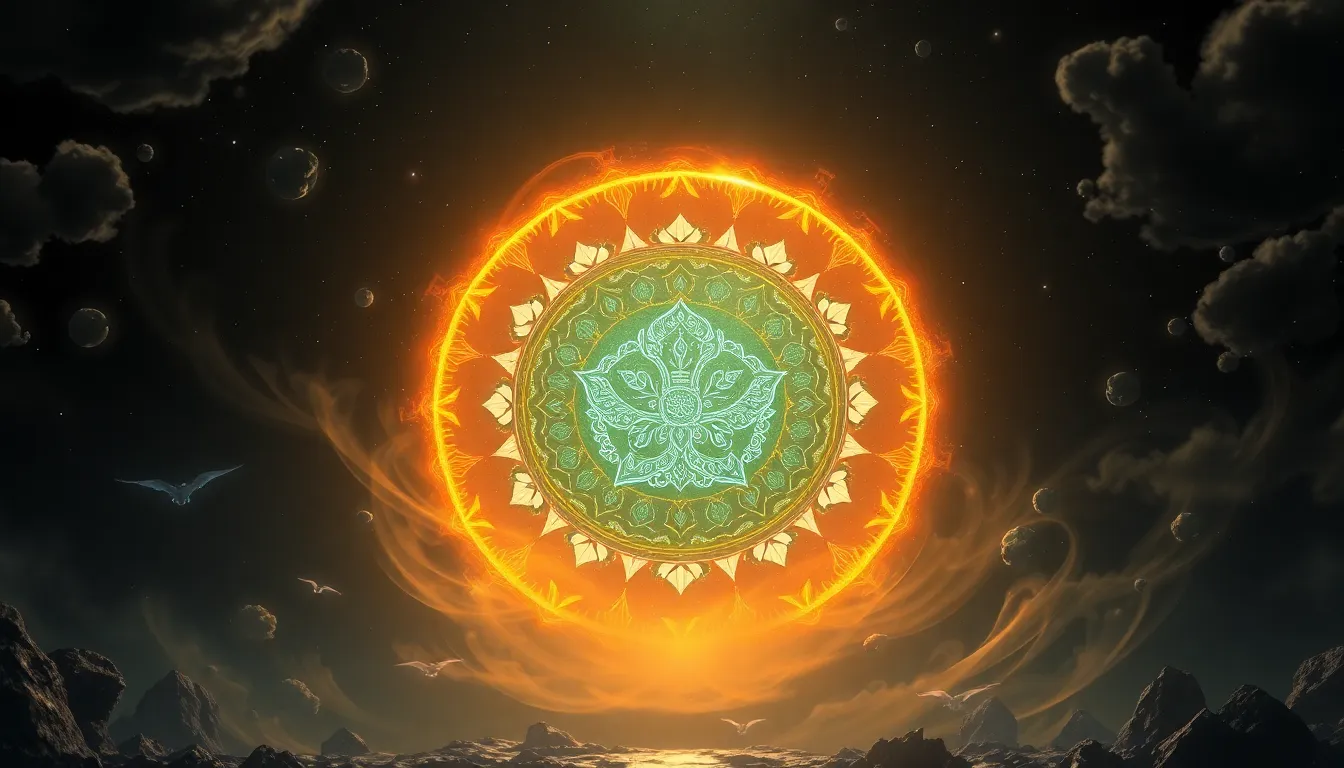The Mythical Roots: How Creation Stories Ground Us
I. Introduction
Creation stories, often referred to as creation myths, are traditional narratives that describe the origins of the universe, life, and humanity. They serve as foundational tales that explain how the world came into being, and they are integral to the cultural fabric of societies around the globe.
These myths are not just mere stories; they are vital components of cultural identity, providing a shared narrative that unites communities. This article aims to explore the significance of creation stories, their common themes, their cultural variations, and their enduring relevance in contemporary society.
II. The Significance of Creation Myths
Creation myths play several critical roles in human society:
- Understanding human existence and purpose: They provide answers to existential questions, helping individuals understand their place in the universe.
- Cultural identity and community cohesion: These myths foster a sense of belonging and shared history among members of a community.
- Psychological comfort and existential reassurance: In times of uncertainty, creation stories offer comfort and a framework for understanding the chaos of life.
III. Common Themes in Creation Stories
Despite the diversity of creation myths across cultures, several common themes emerge:
- Chaos and order: Many stories begin with chaos or nothingness, followed by the emergence of order and life.
- The role of deities and supernatural beings: Creation often involves gods or supernatural entities who shape the world and its inhabitants.
- Nature and the environment: Creation myths frequently highlight nature as a central character, emphasizing the interconnectedness of all living things.
IV. Creation Stories Across Cultures
A comparative analysis of creation myths reveals both shared motifs and unique interpretations across different regions:
A. Comparative analysis of creation myths from different regions
- Indigenous North American myths: Often emphasize the importance of nature and animals, with many stories featuring a trickster figure who plays a vital role in creation.
- African creation narratives: Frequently depict a creator god who forms the world through a series of deliberate actions, with an emphasis on community and familial ties.
- Eastern creation legends (Hindu, Buddhist): Hindu myths often describe a cosmic cycle of creation and destruction, while Buddhist narratives focus on the impermanence of existence.
- Western creation stories (Judeo-Christian): These typically involve a singular creator who brings the world into existence in a structured manner, as seen in the Book of Genesis.
These myths reflect the values and beliefs of their respective cultures while highlighting universal themes of creation and existence.
V. The Role of Oral Tradition in Preserving Creation Myths
Oral tradition has played a crucial role in the preservation and transmission of creation myths:
- Oral storytelling techniques: The use of rhythm, repetition, and performance enhances memory and engagement, making stories memorable and impactful.
- Cultural survival: Oral traditions have allowed communities to maintain their identities and histories, especially in the face of colonialism and globalization.
- Transition to written forms: The shift from oral to written traditions has brought about changes in how myths are interpreted and understood, often leading to a loss of the original context.
VI. The Psychological Impact of Creation Stories
Creation myths significantly influence our psychological landscape:
- Formation of worldviews: These narratives help shape our beliefs about existence, morality, and the universe.
- Coping mechanisms: In times of crisis, creation myths can provide solace and a sense of control over chaotic circumstances.
- Connection to mental health: Engaging with these stories can foster resilience and provide a framework for understanding life’s challenges.
VII. Creation Myths in Modern Context
The influence of creation stories extends into contemporary culture:
- Literature and art: Many modern authors and artists draw inspiration from creation myths, reinterpreting them to address current issues.
- Film and popular culture: Creation narratives are often adapted into films and media, reflecting their enduring relevance and appeal.
- Science and philosophy: Creation myths are juxtaposed with scientific explanations, leading to rich discussions about the nature of existence and the universe.
VIII. The Relevance of Creation Myths Today
Creation myths remain pertinent in addressing contemporary issues:
- Environmental issues: Myths can provide insights into humanity’s relationship with nature, promoting stewardship and sustainability.
- Cultural appropriation: There is a growing awareness of the need to honor and preserve indigenous narratives while avoiding exploitation.
- Global unity: Creation stories can foster a sense of shared humanity, encouraging dialogue and understanding among diverse cultures.
IX. Critiques and Challenges to Creation Myths
Creation myths are not without their critiques:
- Scientific perspectives: The rise of scientific explanations for the origins of the universe challenges traditional creation narratives.
- Debates within communities: Discussions about the validity and relevance of these myths occur within both religious and secular contexts.
- Evolving nature of myth: As societies change, so too do their myths, leading to new interpretations and adaptations.
X. Conclusion
Creation stories hold a profound significance in grounding human experience, offering insights into our existence, identity, and purpose. They serve as a bridge connecting us to our ancestors and to each other, providing narratives that resonate through time.
As we explore and appreciate the diverse creation narratives from around the world, we foster a deeper understanding of our shared humanity and the myriad ways we seek to make sense of our lives. In a world that often feels divided, these stories remind us of our common origins and the enduring power of myth to unite us in our quest for meaning.



